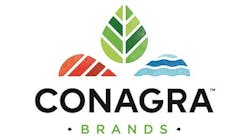Krispy Kreme, the Winston-Salem, N.C., baker of hot, glazed doughnuts, is being taken private after 16 years as a public company by JAB Beech in a deal worth approximately $1.35 billion. JAB, a European investment fund that also owns brands including Keurig Green Mountain, will expand its coffee portfolio and consumer brands with the acquisition. Krispy Kreme reportedly has more than 1,100 shops in more than 26 countries. JAB Beech Inc. will pay $21 for each share of Krispy Kreme Doughnuts Inc.
Once famous for the long lines that gathered when it opened a new store, the Krispy Kreme chain nearly sank in the mid-2000s after it grew too quickly, and suffered from the surge in low-carb diets and a federal investigation into its accounting practices.
Peter Harf, a senior partner at JAB, stated that the acquisition is part of its strategy of investing in brands with significant growth prospects. The deal "is yet another example of our commitment to investing in extraordinary brands with significant growth prospects," Harf added in a written statement. JAB's announcement said Krispy Kreme will continue to be independently operated from its current headquarters.
Krispy Kreme's board unanimously approved the transaction, which is targeted to close in the third quarter.
Last summer, Luxembourg-based JAB paid about $5 billion for control of Mondelez Inc.’s coffee business, and it also owns Peet’s Coffee & Tea, and Danish coffee-bar chain Baresso Coffee A/S. JAB also owns Einstein Bros. Bagels and Caribou Coffee, and has been teaming the two in some markets into co-branded stores simply called Coffee & Bagels.
Krispy Kreme began selling doughnuts in North Carolina in the 1930s. Its flashing "hot now" signs have long been a fixture on Southern U.S. roadsides. It has been trying to shore up its coffee business to attract customers who might not want doughnuts with its launch of new coffee drinks and what it calls edible coffee treats, such as cappuccino and caramel macchiato-flavored snacks. But it has had several ups and downs since becoming a publicly traded company in 2000, even as its sales grew.
JAB has more than $50 billion in assets under management, up from $14 billion at the end of 2011, and has built quietly a far-flung cupboard of household brands despite maintaining a low public profile.

